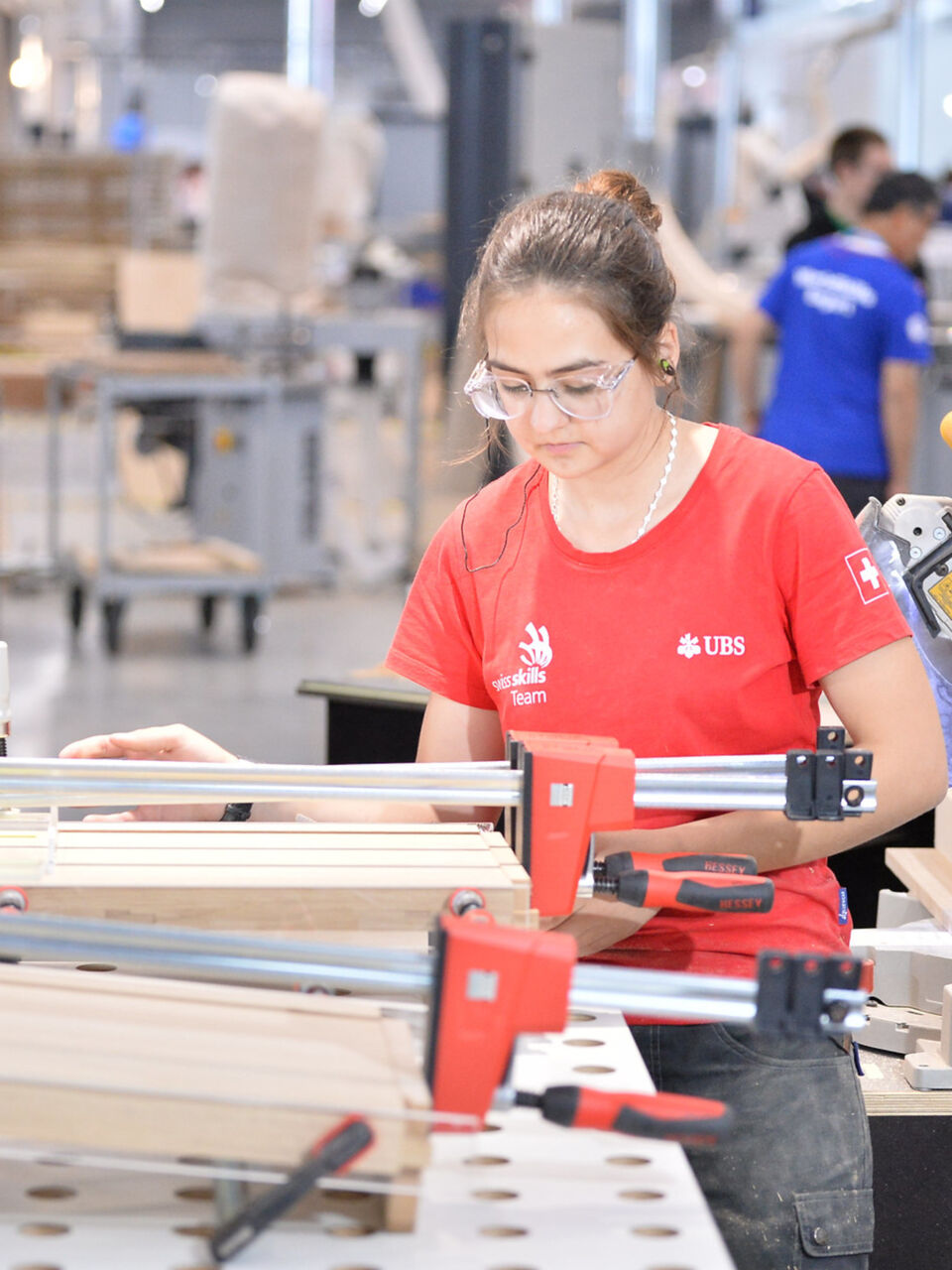Winning gold at a WorldSkills Competition is a spectacular achievement for any young person. Now researchers have discovered it can be just as motivating for young people in the winner’s country.
How WorldSkills excellence motivates young people in Switzerland
Standing on the WorldSkills stage to receive a medal understandably leaves a Competitor with a huge sense of pride and self-confidence and it lays the foundation for their future career success. But what of other young people who might witness their achievement? Two academics from the University of Bern, Prof. Dr. Stefan Wolter and Dr. Daniel Goller, have been able to prove that national success at an international WorldSkills Competition is enough to inspire other students to consider a career in that skill for themselves.
Their Positive Reputation Shock Report, published in November 2023, found that when a SwissSkills Competitor wins a gold medal, there is a 7% increase in national searches for apprenticeship vacancies in that particular occupation. This is in contrast to occupations where a SwissSkills Competitor did not win a gold medal. It shows that the acclaim given to medal winners has a positive impact on the skill and temporarily boosts its social status, influencing how young people perceive it.
Gold medals resulted in the largest search increase, but Goller and Wolter also noted a positive, less pronounced effect in occupations where silver or bronze medals were awarded. Importantly, the increase in searches for apprenticeship vacancies led to around 2.5% more contracts being signed in the winning occupation. There are also indications that these apprenticeships lead to a better match between employers and employees.
While the research focused on medal winners at international WorldSkills Competitions, Goller and Wolter agree that similar findings could be assumed on a national or regional level, and have plans to research this further. For WorldSkills Members, these findings are hugely significant. It shows conclusively that medal success increases the reputation of a skill and, in turn, drives young people to seek out apprenticeship and training opportunities.
Goller and Wolter’s research focused on data from four international WorldSkills Competitions over the last decade: WorldSkills Leipzig 2013, WorldSkills São Paulo 2015, WorldSkills Abu Dhabi 2017, and WorldSkills Competition 2022 Special Edition. (Data from WorldSkills Kazan 2019 was not used as its’ potential impact was overshadowed by the COVID-19 pandemic, which had a negative impact on the supply of apprentices). To assess the “positive reputation shock” effect, this data was then compared to data from Switzerland’s national platform for vacancies in apprenticeship occupations.
The research is incredibly exciting as we now have data that proves how participating and excelling at skills competitions can be a powerful way of inspiring a new generation of young people. Industry and educators should take note, too. If we increase our focus on training young people for competitions in areas where we are short on talent, then we can use the news of their success to help close our skills gaps. Now, we are asking the question: how can we do more to profile national and international medal winners, so more young people consider a career in skills?
SwissSkills already uses marketing and communications to spread the word about its skills excellence. Among other initiatives, it has 7,500 followers on Instagram, sends its Champions to speak at schools, produces a monthly blog post, and has a regular podcast series called “SwissMadeExcellence”. On the podcast, SwissSkills Experts answer questions such as, “How do I make the right career decision given the huge variety of options?” and, “How can I support my child in TVET?”.
The team’s efforts are paying off. But for Burri, there is always room to grow. He says, “We have seen the evidence in the Positive Reputation Shock Report so we now know that profiling winners works. Those young people who might not be able to attend a national Competition themselves, are still motivated to apply for apprenticeships in that industry. We must continue to shout about our Competition success far and wide, so even more young people are inspired to take that leap.”
